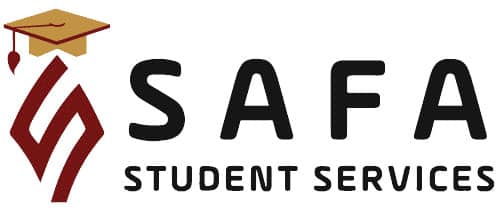Everything About the Education System in Turkey


جدول المحتويات
The education system in Turkey is one of the advanced systems that aims to provide excellent educational opportunities at all levels. Although Turkey is known for its excellence in higher education, the Turkish government is making significant efforts to develop the educational system as a whole, starting from primary and secondary education.
This focus on early education reflects Turkey’s vision to improve the quality of education at all levels. In this article, we will explore the education system in Turkey in detail, highlighting how its various stages interact and how this affects the development of higher education.
The Education System in Turkey
The education system in Turkey consists of two main parts: formal education and non-formal education. Formal education includes pre-school education, primary education, secondary education, and higher education institutions, while non-formal education covers all organized educational activities alongside or outside the formal education system.
Educational institutions in Turkey are open to everyone, regardless of their language, ethnicity, gender, or religion, and no privileges are granted to anyone in education. To enroll in the Turkish education system, one must be legally present in Turkey.

The Turkish education system is supervised and controlled by the state, specifically the Ministry of National Education. According to the Turkish Constitution, every individual has the right to education. In addition to public universities, the first non-profit private universities began offering education to students in Turkey in 1986. Since 2012, compulsory education in Turkey lasts for 12 years and is divided into three stages (primary education, secondary education, and high school), after which comes higher education.
Stages of Education in Turkey
- Pre-primary Education: This includes the education of children from ages 3 to 5, who have not reached the mandatory age for primary education. This education is optional.
- Primary Education: The first stage, where children aged 6 to 10 are taught. Primary education is mandatory for all citizens and is free in public schools. It lasts for four years (grades 1 to 4).
- Secondary Primary Education: The second stage of primary education, for children aged 10 to 14, lasting for four years (grades 5 to 8). At the end of primary school, students are provided with information about high schools (general, vocational, and technical schools) and the types of jobs they can prepare for and enter.
- Secondary Education: Includes general, vocational, and technical high schools. The duration of study is four years, directed at children aged 14 to 17 (grades 9 to 12). Secondary education is mandatory for all citizens and is free in public schools.
- Higher Education: After graduating from high school, students can enroll in higher education, which is aligned with the Bologna system, consisting of three cycles.
Higher Education System in Turkey
The education system in Turkey covers all institutions that offer programs for two years or more after secondary education. This system includes universities, technological institutes, vocational schools, and other higher education institutions. Turkey has 209 educational institutions, including both public and private universities. Not only are public universities funded and supervised by the state, but private universities were also established under state supervision and are regulated to ensure their academic quality.

Education in Turkey is advanced, especially at the university level, where Turkish universities offer accredited academic and professional programs. These include bachelor’s degrees that last from 4 to 6 years, associate degree programs that last two years, and postgraduate programs in graduate schools and institutes. Some universities also offer distance learning opportunities, allowing students who wish to study and benefit from the Turkish education system to continue their studies without being hindered by location.
Types of Higher Education Institutions
- College: A division within universities that focuses on higher education, scientific research, and publishing. It offers educational programs that lead to a bachelor’s degree, which typically lasts for four years.
- Graduate School: An academic institution specializing in master’s and doctoral programs.
- Music Institutes: Educational institutions specialized in training artists in music and performing arts. The program typically lasts for eight semesters, helping students develop their artistic skills academically.
- Post-secondary Vocational Schools: These institutions aim to train students for specific professions, offering programs that last for four semesters only, enabling students to acquire practical skills that qualify them for the job market quickly.
- Research and Application Centers: These are academic institutions focused on conducting applied research in various fields. Their goal is to support education in Turkey, especially higher education, by offering preparatory and research activities that meet the professional development needs in various fields.
Degrees Awarded to Students in Turkey
Education in Turkey provides a range of opportunities for students at all stages of higher education, allowing them to obtain internationally recognized academic qualifications. The degree system in Turkey is organized and diverse, reflecting the variety of academic programs offered by universities and educational institutions. Students begin their studies in Turkey with certain degrees and then continue their academic progression to earn higher degrees based on different specializations.
Associate Degree
An associate degree is awarded upon completion of a two-year program. These programs are offered at universities and post-secondary vocational schools. Some distance learning programs are also available, and associate degree programs may require a period of practical training during the study.
Bachelor’s Degree
A bachelor’s degree is awarded after a four-year study period at Turkish universities. However, some study programs last longer than 4 years. For instance, the study duration for Dentistry, Veterinary Medicine, and Pharmacy is five years, while Medicine takes six years.
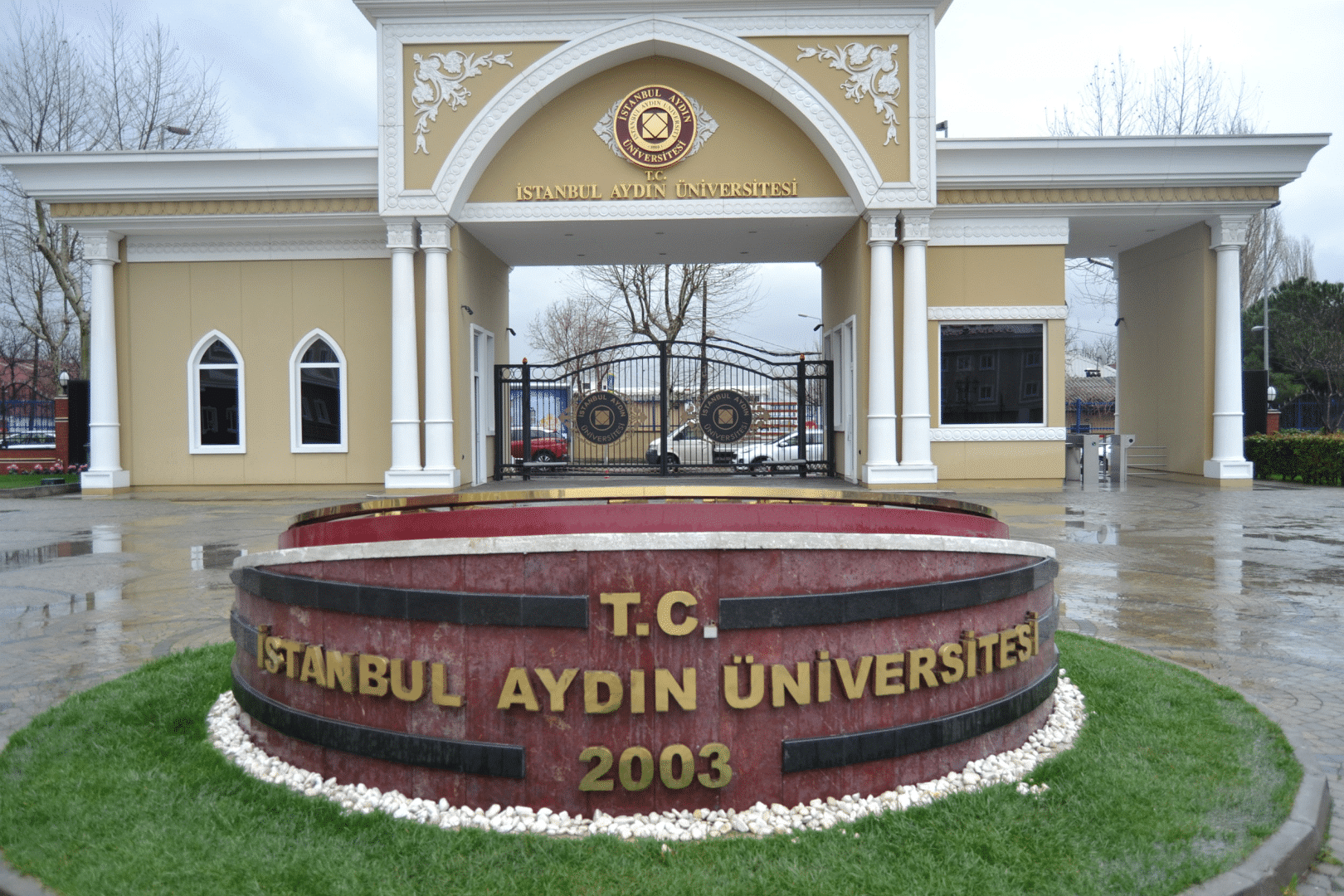
Master’s Degree
A Master’s degree program lasts for two years and leads to a Master of Arts or Master of Science degree. There are two types of Master’s programs: with or without a thesis. A Master’s program with a thesis generally consists of courses totaling at least 120 European Credit Transfer System (ECTS) credits, followed by the submission of a thesis. Non-thesis Master’s programs must be completed within one or one and a half years and require the completion of graduate courses totaling at least 90 credits, along with a semester project.
Doctoral Degree
In Turkey, a doctoral program lasts for eight semesters and leads to a Ph.D. degree. The program consists of courses worth between 180 and 240 credits, a competency exam, a thesis proposal, and a thesis defense. After successfully completing the coursework and the competency exam, students must submit their thesis and defend it orally before a panel.
Proficiency in Arts
This is a post-Master’s program in the visual arts and performing arts, lasting at least six semesters, making this degree equivalent to a Ph.D. It requires the submission of an artistic work or an outstanding creative performance in music or the performing arts.

Admission of International Students
International students wishing to pursue undergraduate studies and enroll in the Turkish education system must have completed their secondary education in a high school or an equivalent institution where the education is considered equivalent to that of Turkish secondary schools.
Turkish universities Admission Requirements:
- Payment of the university application fee.
- Proficiency certificate in the language.
- In the case of studying in English, passing the TOEFL or IELTS language test with a score determined by the university is required.
- In the case of studying in Turkish, passing the TOMER Turkish language test or attending a preparatory year is required.
You can Register with Safa to study in Turkey now and get your acceptance easily. Safa your Friendly Companion in your Education 🎓 WhatsApp

Required Documents:
To register at Turkish universities, there are several documents required, and the student must submit these files and documents before sending the university application. It is sufficient to send them in PDF or JPG format during the initial registration stage for the student to obtain provisional acceptance at the university. These documents may vary depending on the undergraduate or graduate level, but there are some documents that are common to both stages. The following are the necessary documents for application:
For undergraduate and institute students:
- Valid passport.
- Recent passport-sized photo (white background).
- Copy of high school diploma.
- Student’s email address.
For graduate students:
- Bachelor’s degree certificate for graduate students.
- Translated copy of the transcript in English or Turkish.
- Receipt of payment for the application fee.
- Recommendation letters (Master’s, Ph.D.).
Tuition Fees
Tuition fees vary between public universities and non-profit private universities in Turkey. In public universities, tuition fees are determined and announced by a presidential decree, taking into consideration the type and duration of the study programs in different disciplines. In non-profit private universities, the tuition fees are set by the university’s board of trustees.
Students are required to pay their tuition fees for each semester before registering for the program at the beginning of the specified semester. Both public and non-profit private universities offer various scholarships to a certain percentage of accepted students. These scholarships may include full or partial tuition fee exemptions, merit-based scholarships, or financial aid. Some scholarships may also cover academic materials, accommodation, food, beverages, and even allowances. Additionally, student assistance and research fellowships are other forms of support that can be beneficial during studies in Turkey.
In conclusion, the education system in Turkey offers a rich academic environment, focusing on the development of education at all levels, from primary to higher education. Turkey opens its doors to students from all around the world to receive high-quality education. Therefore, if you are looking to apply to Turkish universities, do not hesitate to contact Safa Company, as we provide complete support throughout the entire registration process and academic procedures, helping you begin your studies in Turkey easily and successfully.
Latest News
Related Articles & News
Follow our latest articles

Studying Mechanical Engineering in Turkey 2025: A Pillar of Industry and Innovation
In our modern world, from the engines of the cars that drive us daily to giant electricity-generating turbines and precision...
See More
Studying Artificial Intelligence Engineering in Turkey 2025: Towards a Future Led by Intelligent Machines
In a world experiencing an unprecedented technological revolution, Artificial Intelligence (AI) has become the driving force behind innovation in almost...
See More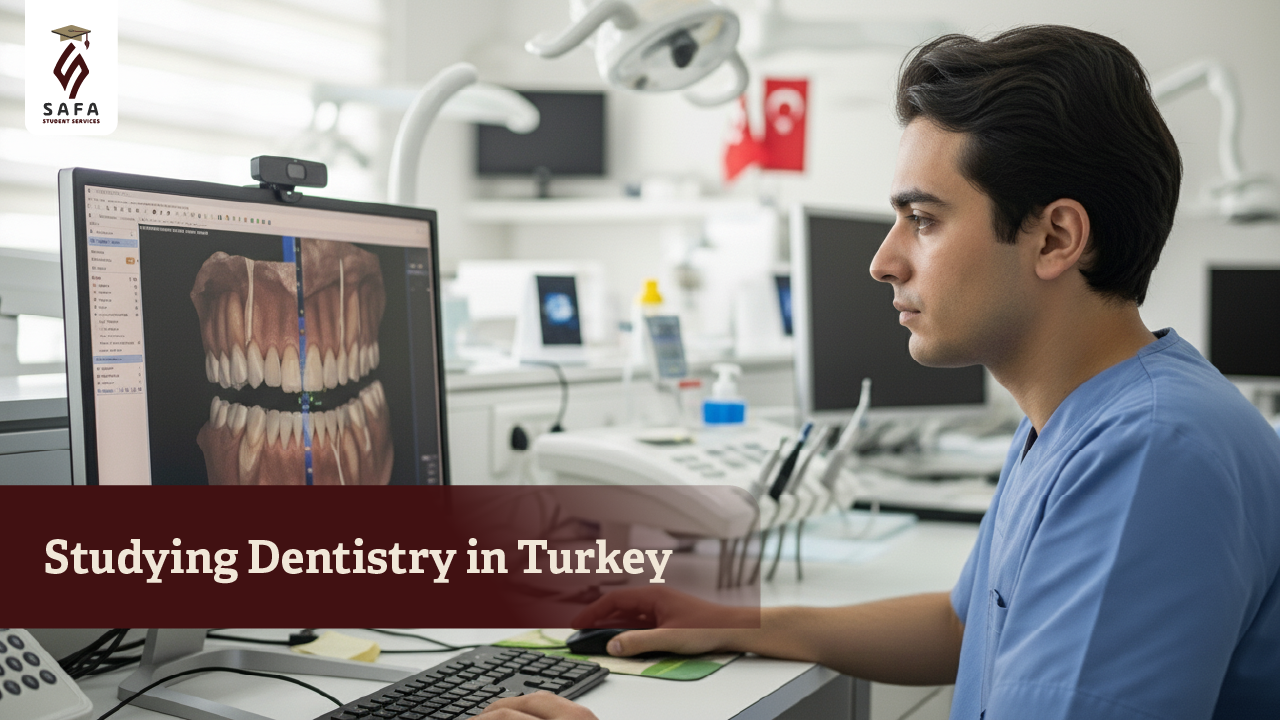
Studying Dentistry in Turkey 2025: A Bright Smile for a Promising Future
In a world where health and beauty are increasingly important, dentistry is a medical profession that combines scientific precision with...
See More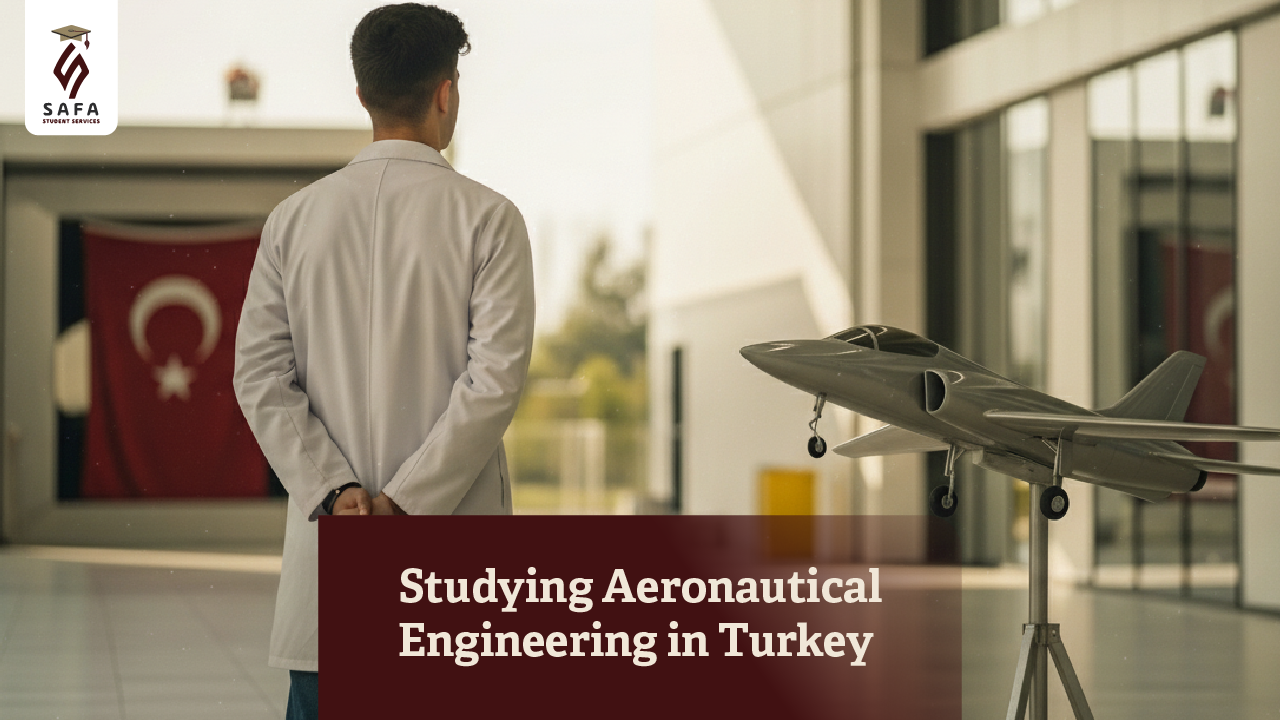
Studying Aeronautical Engineering in Turkey 2025: Soar into the skies of innovation
Imagine yourself as part of a team designing the aircraft of the future, a cutting-edge space system, or developing technologies...
See More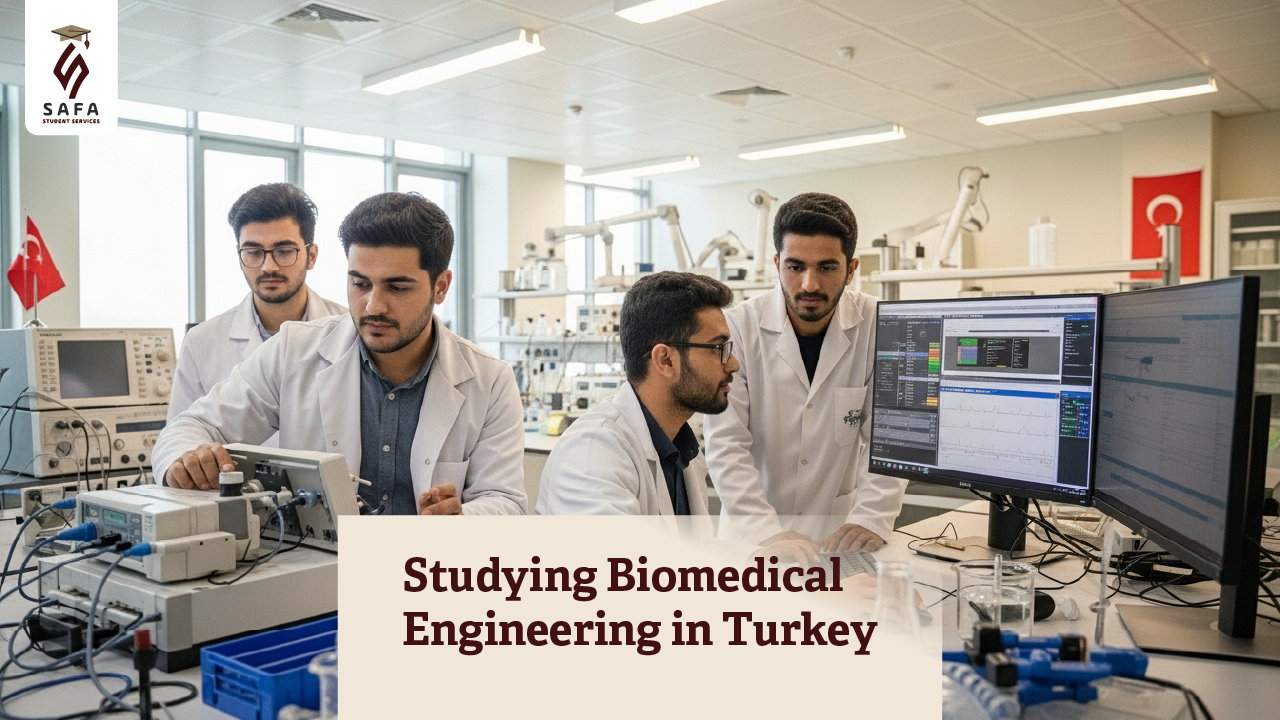
Studying Biomedical Engineering in Türkiye 2025: A bridge linking engineering and health
In an era of rapid medical advancement, cutting-edge medical equipment has become the backbone of modern healthcare, from precision diagnostic...
See More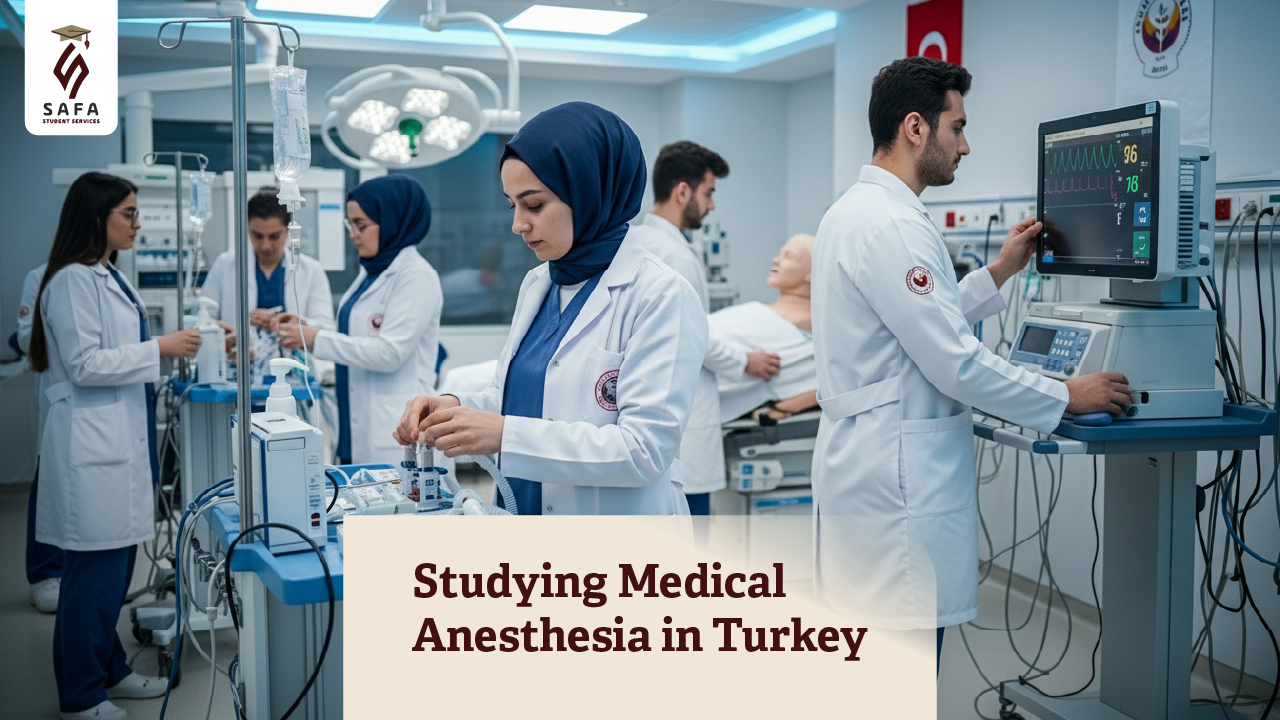
Studying Anesthesiology in Turkey 2025: A vital profession at the heart of healthcare
In every surgical procedure, and in many complex medical operations, the anesthesiologist plays a pivotal role, no less important than...
See More
